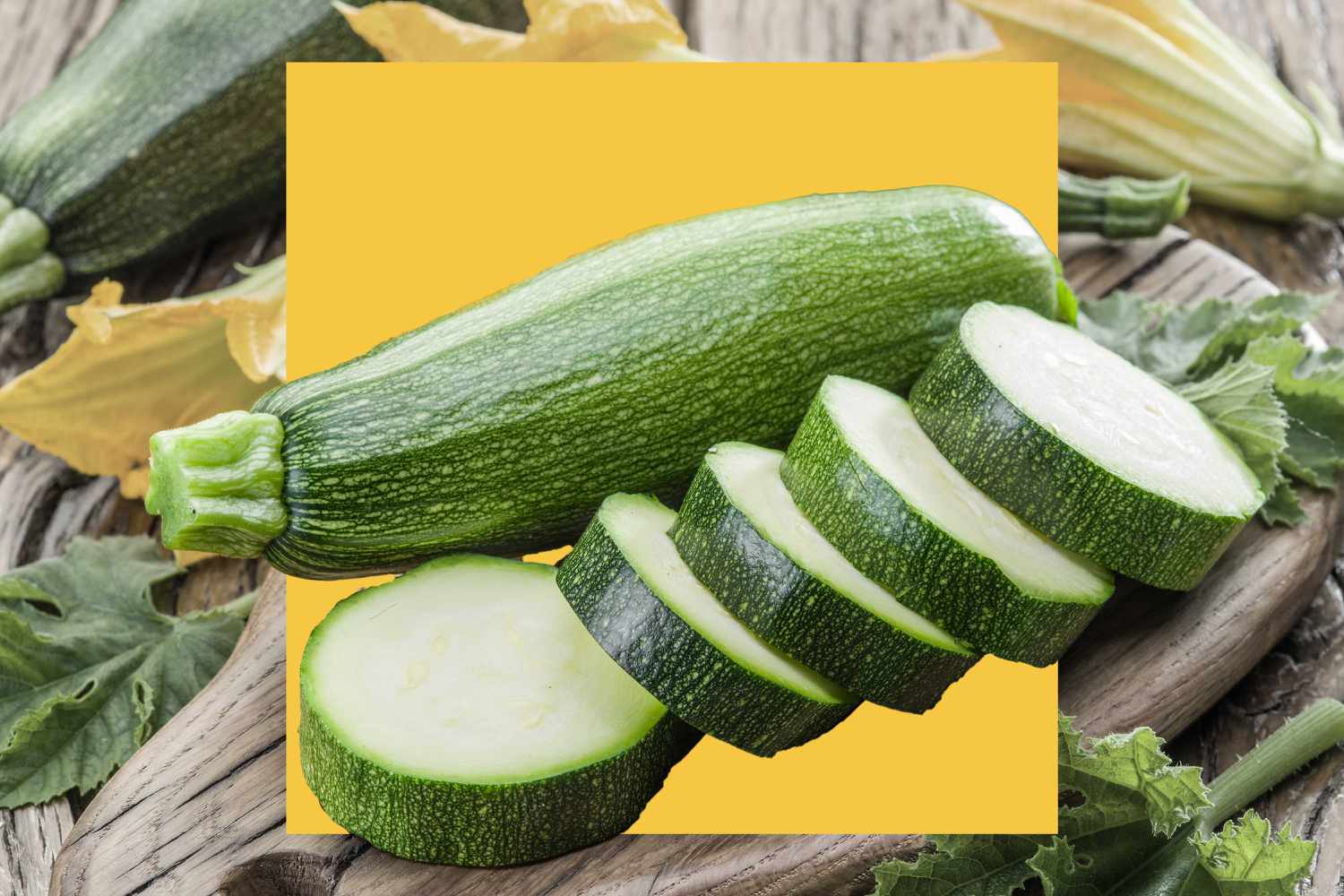"Zucchini: Nutritional Insights, Health Advantages, and Varieties"

Zucchini is synonymous with summer’s bounty—so much so that their overabundance is a source of jokes about how to use them up or how to prevent your neighbors from leaving a bag on your porch. True to these stereotypes, zucchini is, in fact, in season in the summertime. Their peak harvesting months are May through August.
The history of these oblong green veggies goes back a lot further than unloading extra gourds on your friends and family. Zucchini was first cultivated from squash in Mesoamerica more than 7,000 years ago. With their firm but yielding flesh and mild flavor, they’re a vehicle for all sorts of creative culinary applications. From stir-fries and cookies to casseroles and zucchini fries, there’s no shortage of tasty zucchini dishes.
An even bigger bonus? These veggies are an excellent addition to a nutritious diet thanks to their fiber, water, and micronutrient content. Whether you grill them, roast them, or toss them in a loaf of sweet bread, you’ll reap benefits for health and wellness. So, really, with a vegetable so versatile—and so healthy—can you ever have too much zucchini?
Though chain grocery stores may only carry one or two varieties of zucchini, there are dozens of types. Some include:
A one-cup serving of raw zucchini has the following nutrition:
Zucchini is a versatile vegetable that contains several vitamins, minerals, and antioxidants. It also offers a number of potential health benefits. Here are just a few of the ways you may benefit from eating zucchini.
Zucchini isn’t quite a fiber powerhouse, but it does contain 1.2 grams of this nutrient per cup. Getting plenty of dietary fiber is essential for a healthy gut microbiome. Plus, the soluble fiber in zucchini is particularly beneficial because it’s the main energy source for gut microbiota. Meanwhile, the veggie's 95% water content keeps things moving in the digestive tract, promoting bowel regularity.
If you have diabetes or prediabetes, your body has trouble processing sugar from carbohydrates—hence the low-carb diet often prescribed for people with these conditions. As a low-carb veggie with just 3.9 grams of carbs per cup (and 1.2 of them are from fiber), zucchini is a great choice. Fiber helps control blood sugar and increase insulin sensitivity. It’s no wonder spiralized zucchini noodles are a popular replacement for pasta among folks with blood sugar modulations.
Like most fruits and veggies, zucchini is a source of antioxidants—the compounds that oust damaging free radicals from your cells. Among them are multiple antioxidants linked to eye health, including vitamin C, beta-carotene, lutein, and zeaxanthin. Beta-carotene is a precursor of vitamin A, a nutrient known for supporting healthy vision. Lutein and zeaxanthin accumulate in the retina, where they help absorb light and protect the retina from damage. And zucchini is full of all of these goodies.
That 95% water we mentioned? It’s kind of a big deal for staying hydrated. For adequate hydration, the Academy of Nutrition and Dietetics recommends consuming plenty of foods with 90% to 100% water content. And zucchini answers the call here, too. Plus, adequate hydration means healthier, more glowing skin—and we can absolutely sign up for that.
Diets rich in fruits and veggies are consistently linked with a lower risk of cardiovascular disease. Plus, zucchini has some unique advantages when it comes to protecting your heart. Besides its bump of fiber, which can help reduce cholesterol, zucchini’s carotenoid antioxidants have anti-inflammatory effects on the cardiovascular system. And then there’s the zucchini's potassium content. One cup contains about 9% of your daily potassium needs. Consuming adequate potassium can help control high blood pressure, lowering your risk of heart problems.
Selecting the perfect zucchini is like trying out a mattress—you’ve gotta feel it. Ripe, high-quality zucchini should be firm to the touch, but not rock-hard. Look for veggies without browning or soft spots—but if you see some scratchy-looking scuff marks, that’s OK. These are normal markings from the zucchini's time growing on the ground.
Zucchini are available year-round, but for the best taste and quality, you’ll want to purchase them when they’re in season in the summertime. As for whether to buy organic or conventional, the decision is up to you. Zucchini is not currently on the Environmental Working Group’s (EWG) Dirty Dozen list of produce most laden with pesticides. Plus, research indicates that there are no definitive long-term health benefits of choosing organic produce over conventional.
There are so many ways to enjoy zucchini. This veggie fits into recipes from A to Z. Try it in any of the following preparations.




